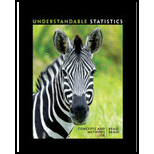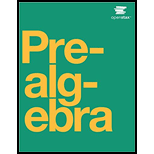
Concept explainers
Surveys: Manipulation The New York Times did a special report on polling that was carried in papers across the nation. The article pointed out how readily the results of a survey can be manipulated. Some features that can influence the results of a poll include the following: the number of possible responses, the phrasing of the questions, the sampling techniques used (voluntary response or sample designed to be representative), the fact that words may mean different things to different people, the questions that precede the question of interest, and finally, the fact that respondents can offer opinions on issues they know nothing about.
- (a) Consider the expression “over the last few years.” Do you think that this expression means the same time span to everyone? What would be a more precise phrase?
- (b) Consider this question: “Do you think fines for running stop signs should be doubled?” Do you think the response would be different if the question “Have you ever run a stop sign?” preceded the question about fines?
- (c) Consider this question: “Do you watch too much television?” What do you think the responses would be if the only responses possible were yes or no? What do you think the responses would be if the possible responses were “rarely,” “sometimes,” or “frequently”?
Want to see the full answer?
Check out a sample textbook solution
Chapter 1 Solutions
WebAssign Printed Access Card for Brase/Brase's Understandable Statistics: Concepts and Methods, 12th Edition, Single-Term
 Holt Mcdougal Larson Pre-algebra: Student Edition...AlgebraISBN:9780547587776Author:HOLT MCDOUGALPublisher:HOLT MCDOUGAL
Holt Mcdougal Larson Pre-algebra: Student Edition...AlgebraISBN:9780547587776Author:HOLT MCDOUGALPublisher:HOLT MCDOUGAL Glencoe Algebra 1, Student Edition, 9780079039897...AlgebraISBN:9780079039897Author:CarterPublisher:McGraw Hill
Glencoe Algebra 1, Student Edition, 9780079039897...AlgebraISBN:9780079039897Author:CarterPublisher:McGraw Hill Big Ideas Math A Bridge To Success Algebra 1: Stu...AlgebraISBN:9781680331141Author:HOUGHTON MIFFLIN HARCOURTPublisher:Houghton Mifflin Harcourt
Big Ideas Math A Bridge To Success Algebra 1: Stu...AlgebraISBN:9781680331141Author:HOUGHTON MIFFLIN HARCOURTPublisher:Houghton Mifflin Harcourt

 College Algebra (MindTap Course List)AlgebraISBN:9781305652231Author:R. David Gustafson, Jeff HughesPublisher:Cengage Learning
College Algebra (MindTap Course List)AlgebraISBN:9781305652231Author:R. David Gustafson, Jeff HughesPublisher:Cengage Learning





